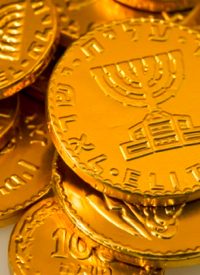
Many years ago, John D. Rockefeller, Sr. famously stated, “Competition is a sin.” He preferred a monopoly, the very antithesis of economic freedom, in order to increase profits.
A monopoly accomplishes for its creator the opportunity to gouge the public, a consequence generally well-known, and generally despised. There is, however, one commodity existing as a monopoly that the public does not loathe, the creation of money. This monopoly seems to most Americans to be the only way to proceed. They are unaware that our nation once had competing currencies and this competition led to honesty in the field of money.
Several Spanish coins made of precious metal were circulating during colonial days, even after the Declaration of Independence. In 1792, the U.S. Mint began its constitutionally authorized operations and the people brought their gold and silver to be stamped into coinage of a fixed size, weight, and purity. Also, there were private mints issuing precious metal coinage; the government did not have a monopoly in the field of coining money. As a result, the nation thrived, as one always will when there is sound money. But, today, the only legal money is fiat money issued by the Federal Reserve that is deemed money by law. Its value continues to decrease because there is virtually no limit on how much of it can be issued. If our country were on a gold or silver standard, inflating the supply of those precious metals would be impossible.
Congressman Ron Paul has become well-known and equally well-admired for his advocacy of sound money and his opposition to the Federal Reserve. In addition to his bill calling for auditing the Fed, he has now introduced the “Free Competition in Currency Act of 2009.” He notes that, to be useful and honest, currency has to be durable, portable, divisible, uniform, stable, reproducible, and scarce. And he notes that mankind’s history demonstrates that gold and silver, not paper bills, have been the choices arrived at for money throughout the millennia.
The congressman’s new measure calls for three steps. The first is to repeal legal tender laws that give paper bills issued by the Fed the monopoly always sought by thieves and tyrants. The only legal tender in our nation today is the paper currency issued by the Fed. But Congress has constitutional power to coin money, not to monopolize paper.
The second step in this new bill would eliminate laws that prohibit private mints from creating coinage to be use as currency. If numerous mints were producing gold and silver coins and bars, the public would cease relying on the increasingly less valuable paper issued by the Fed. Would some mints possibly defraud customers by adding base metal to supposedly pure gold or silver? That’s a possibility and the recourse would be to take the mint owner to court and sue for fraud. What exists today is a Federal Reserve that defrauds everyone.
In his final step, he calls for eliminating capital gains and sales taxes on gold and silver coins. The congressman provides a clear explanation of the absurdity and injustice of taxing the purchase of gold and silver coins by noting how stupid and unjust it would be if a sales tax were charged every time a person exchanged a ten dollar bill for a roll of quarters.
The Texas legislator also makes the realistic assertion that a return to competition in money would see an end to inflation, even an end to unconstitutional wars financed by the Fed’s paper bills. Deficit spending for numerous other unconstitutional programs would also be phased out.
Let us ardently hope that this very sensible and very much needed measure receives the kind of support that 317 members of the House of Representatives have given by co-sponsoring H.R. 1207, the bill calling for the General Accounting office to audit the Federal Reserve. America needs competition in money as in the production and use of any commodity. Competition is a sin only in the eyes of monopolists or would-be monopolists who want to control the market.



